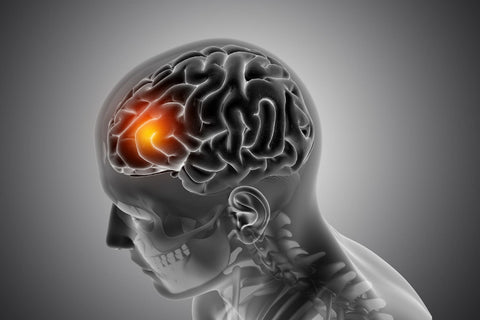Possible causes of digestive & gastro-intestinal problems may include the following: excessive or insufficient secretion of hydrochloric acid in the stomach, food allergies, stomach cramps (inability for their stomachs to relax), lack of probiotic bacteria, lactose intolerance (milk and dairy), gluten intolerance, eating too fast, drinking too much liquid after a meal, eating raw fruits and raw vegetables at the same meals, eating raw fruits after meals instead of before meals, inflammation of the stomach or duodenum, side effects of medication, stress, anxiety, depression, infection with Helicobacter pylori, Candida overgrowth, constipation, eating too much in one sitting, drinking too much alcohol, spicy, fatty or greasy foods, excessive caffeine intake (coffee, cola drinks, black tea, green tea, chocolate, etc.), smoking, gastritis, gastric ulcers, hiatal hernia, pregnancy (especially late), gallstones, pancreatitis, food poisoning, IBS, thyroid disease, heart disease, angina, etc.
Nutritional Supplements & Herbs
Activated Charcoal is an NHS-approved safe medication commonly used to relieve various gastrointestinal symptoms associated with hyperacidity, indigestion, and flatulence.

Some physicians also use it to deal with certain types of chemical and drug poisoning. It helps absorb and neutralise gas created by indigestion and food fermentation in the stomach and intestinal tract. It has repeatedly proven to be very beneficial in assisting body’s detoxification process and especially for numerous gastro-intestinal problems such as gas, flatulence, bloating, nausea, poisoning, diarrhoea, heartburn, aspirin, paracetamol and other medication overdoses, kidney and liver failure, body odour or bad breath.
It was estimated that just one teaspoonful of activated charcoal has about the same total surface area as a football field! This enormous surface area provides activated charcoal with innumerable bonding sites, and when chemicals that are attracted to carbon pass by they are attached to the surface. Due to this effect charcoal is regarded as highly effective in absorbing many poisons from the human gastrointestinal tract. If you are on medication, talk to your doctor before ingesting charcoal.

Ginger has been used for many people as a very effective digestive aid and natural remedy for digestive problems, weak immunity or nausea. Researchers also discovered that three capsules of ginger with meals can actually help people with dyspepsia and abnormally delayed gastric emptying to release stomach contents into the small intestines much faster. Ginger also helps get read of other gastrointestinal problems. In addition, it relaxes the smooth muscle in the gastro-intestinal tract thus preventing constipation.
According to the NHS (UK) website, “Ginger supplements may help to prevent symptoms of motion sickness and other types of nausea, such as morning sickness during pregnancy (very safe, as only a small dose is required)”. A 2009 study proved that “Ginger has a gastroprotective effect through its acid-blocking and anti-Helicobacter pylori activity”. Researchers discovered that capsules with Ginger can actually speed up the release of stomach contents into the small intestines in people with delayed gastric emptying. It also relaxes the smooth muscles of the gut lining and helps food move along the GI tract, preventing constipation.
Ginger has a gastroprotective effect through its acid-blocking and anti-Helicobacter pylori activity
Good Probiotic formula helps increase the number of beneficial bacteria in your intestines and can be very beneficial in dealing with various intestinal problems including gas, bloating, constipation, diarrhoea, IBS or colitis.
The proper ratio of good to bad bacteria is a critical measure in determining overall health and well-being. It is believed that a healthy human organism should contain more than 85% of beneficial bacteria and less than 15% of pathogenic (“bad”) bacteria. Unfortunately, due to unhealthy lifestyle, refined (low in fibre) diet, misuse of antibiotics, birth control pills, stimulants, chlorinated water, toxins, and other factors our gastro-intestinal tract is often very low in beneficial probiotic bacteria.
As a result, our intestines are overloaded with pathogenic yeasts and bacteria producing toxins and causing intestinal damage, inflammations and contributing to all kinds of problems including constipation, diarrhoea, weak immune system, poor absorption of nutrients, skin conditions such as eczema, bloating, allergies, colic, etc.
Due to the amazing probiotic healing properties scientists now use poo (because it contains probiotics) as a medicine. It’s called Faecal Microbiota Transplantation, (also known as Poo Transplant or FMT). They take poo (rich in probiotic bacteria) from a healthy donor and transplant it to a patient who after taking antibiotics developed bacterial infection caused by antibiotic-resistant Clostridium difficile bacteria. Since antibiotics don’t work here they were looking for alternative treatment and found it.
And it works so well that it cures the inflammation in just one single day! Apart from treating Clostridium difficile colitis (where it is currently the best treatment available), it is also effective or very beneficial in ulcerative colitis, irritable bowel syndrome, Crohn’s disease and even allergies. FMT is now approved in America as a medicine and treatment only for antibiotic-resistant Clostridium difficile colitis (if it is resistant after 3 antibiotic treatments).
Fortunately, we don’t have to transplant a poo in order to address these conditions. We can do it by ingesting good quality live probiotics, and if we want the treatment to be even more effective we can open few capsules with live probiotics, mix them with water and transplant into the colon twice daily using an enema.
It will be more effective if before using probiotics a proper enema with only clean water (without probiotics) is used to flush bad bacteria and toxins out of the colon.
- Well-absorbed Magnesium such as citrate powder helps relax stomach muscle and intestines and for this reason can be an excellent aid in stomach cramps, IBS and spastic colon. Take pure Magnesium citrate powder (free from additives) 2 times a day 200-400mg (half to one teaspoon) 1 hour before a meal and 1-2 hours before bed. Some forms of magnesium, such as magnesium citrate, are osmotic laxative, which means they relax your bowels and pull water into your intestines. The water helps soften and bulk up your stool, which makes it easier to pass. Magnesium citrate is relatively gentle. It means it shouldn’t cause urgency or emergency bathroom trips unless you take too much of it. Since magnesium helps maintain healthy nervous system function it also prevents constipation as the nervous system regulates colonic motility. Magnesium is also required for the production of serotonin, which apart from being a happy hormone also regulates peristalsis of the colon, thus preventing constipation. In addition, magnesium is vital for maintaining healthy muscle contraction & relaxation (colon is a muscle). According to Dr Craig Maxwell „Magnesium helps to relax the smooth muscles of the colon allowing normal bowel movements. While a diet high in fibre is important, magnesium is even more important… In a study published in 1996 researchers explain that magnesium sulphate pulls water from other tissue into the small intestines. This water stimulates the muscular movement of the intestines, helping with bowel elimination. The American Cancer Society, state that magnesium citrate has the same laxative effect and usually results in a bowel movement within ½ to 3 hours from taking a supplement.”
- Zinc is used in our body to produce stomach acid. Low stomach acid, therefore, can be a sign of zinc deficiency. That is why when the amount of zinc in our body is insufficient then the protein from food cannot be properly digested in the gastrointestinal tract. As a result, these undigested and too large protein molecules lead to fermentation and indigestion. In addition, these large protein molecules enter the bloodstream where they can be recognized by the oversensitive immune system as potentially dangerous foreign bodies, thus inducing immune reaction and histamine secretion which, in turn, creates allergy symptoms and may contribute to the development of autoimmune conditions including inflammatory bowel diseases.
- Digestive Enzymes are absolutely crucial for proper digestion and the unlocking of nutrients which preserve our life. Our body depends on countless enzymes which control thousands of biochemical reactions that keep us alive, vibrant and healthy. They promote proper digestion and absorption of nutrients and help to regulate body weight and metabolism. Digestive enzymes are also essential for the elimination of waste products and toxins. Unfortunately, most enzymes normally found in fresh and raw plant foods are mostly destroyed by heating. But even with the healthiest, unrefined and rich in nutrients diet, if our body has trouble breaking down and absorbing nutrients, due to lack of its own enzymes, we really can’t reap the benefits. Deficiency of digestive enzymes and also insufficient production of stomach acid (HCl) may lead to malabsorption of nutrients and numerous health conditions including constipation, bloating, abdominal pain, nausea, heartburn, skin problems, tiredness, fatigue, underweight, overweight, allergies or food intolerances. Try formulas with a variety of digestive enzymes as they will improve the digestion and eat fresh raw sprouts as they are 30 times higher in digestive enzymes than other healthy foods!
- Amylase, Lipase and Protease: Today a growing number of health conditions are also linked to poor digestion and malabsorption of nutrients caused especially by the deficiency of Amylase, Lipase and Protease regarded as the most vital among digestive enzymes produced in our body. Amylase is required to digest carbohydrates into simple sugars such as glucose, Protease breaks down protein into amino acids, and Lipase is in charge of fat break down. Since deficiency of these digestive enzymes is believed to be a common problem today addition of Amylase, Lipase and Protease in various formulas can be very beneficial in improving digestion of macronutrients and reducing constipation, bloating, gas and other gastrointestinal problems.
- Lactase enzyme may bring relief to people suffering from lactose intolerance, which is another very common problem. It is caused by the deficiency of lactase which is required to digest lactose (milk sugar). As a result, lactose can’t be fully digested whenever dairy products are consumed and it leads to various unpleasant symptoms such as bloating, gas, wind, cramps, nausea and diarrhoea.
- Digestive enzymes work even better when they are combined with viable bacterial strains of Lactobacillus and Bifidobacterium one of the most important types of friendly bacteria found in the digestive tract, colonizing mainly the large intestine and colon. Bifidobacteria are considered extremely important to the health of the gastrointestinal tract. They may play a vital role in aiding the absorption of nutrients, strengthening the immune function, fighting Candida, preventing flu and colds, and eliminating various intestinal problems including wind, gas, bloating, diarrhoea or constipation.
- Bromelain is a type of proteolytic (helps break down proteins) enzymes, found in pineapple fruit (especially in stems or cores). Bromelain is composed of several endopeptidases and compounds like peroxidase, phosphatase, glucosidase, escharase cellulase, and protease inhibitors. It is a powerful digestive aid effective in the entire digestive system including in the presence of stomach acid and also in the alkaline environment of the intestines. The activity of Bromelain is measured in GDUs (Gelatin Digesting Units) which indicate the proteolytic (protein digesting) activity. Bromelain is effective against various digestive and gastrointestinal problems simply because it is an enzyme that helps to digest proteins. It also supports the absorption of nutrients. It is known to ease colon inflammation and symptoms of autoimmune inflammatory bowel disease by reducing the secretion of pro-inflammatory cytokines which damage the gut lining. Due to the fact that Bromelain actually heals the gastrointestinal tract lining, it is beneficial for the following GI problems: Inflammatory bowel disease (Ulcerative colitis & Crohn’s disease), Heartburn, Dyspepsia, Gastric ulcers (caused by helicobacter pylori), Constipation, and Diarrhoea.
- Betaine hydrochloride (Betaine HCl), usually derived from beets, is an amino acid and supplement for helping food to be fully processed in the stomach for optimum nutritional benefits. Betaine HCl promotes healthy stomach acidity, gastric function and the digestion of protein as it activates pepsin used to break down proteins into amino acids. Betaine hydrochloride helps absorb vitamins – increasing their bioavailability. Betaine also helps regulate homocysteine levels as it is used to convert homocysteine in the blood to methionine. Elevated homocysteine levels, which increase with age, are linked to heart issues and blood clots. In the body, betaine can be created by choline in combination with the amino acid glycine. Just like some B vitamins, including folate and vitamin B12, betaine is considered to be a methyl donor which aids in detoxification and liver function.
- Cayenne paper stimulates the production of gastric juices which helps digestion, relieves gas and can help lose weight. According to Dr Axe “Cayenne pepper benefits are numerous and effective; it’s used to help digestion, including heal upset stomach, intestinal gas, stop stomach pain, diarrhoea and as a natural remedy for cramps." Many herbalists and experts indicate that unlike other hot spices cayenne pepper is safe for the delicate stomach lining. According to Dr Schultz, “Cayenne pepper is not an irritant, like the mustard and black pepper.” Jethro Kloss wrote that cayenne pepper “produces the most powerful impression on the surface, yet never draws a blister on the stomach, and never weakens its tone. It never produces any local lesion, or induces inflammation.” Cayenne pepper improves digestion by stimulating the digestive tract to increase the production of gastric juices and enzymes. It also aids the body’s ability to metabolize food, improve absorption of vitamins and minerals and increase energy levels. Cayenne pepper is also helpful for relieving intestinal gas. It stimulates intestinal motility, aiding elimination of toxins and preventing constipation. It helps the body to create hydrochloric acid, which is necessary for proper digestion and assimilation of macronutrients, especially of proteins. It is even more important when we realize that the digestive system plays the vital role in mental, emotional and physical health, as it is through the digestive system that the brain, glands, muscles and every other part of the body are fed.
- A 2015 study revealed that Artichoke extract can improve dyspepsia and indigestion. It was even more effective when combined with ginger. Artichoke is also known to improve liver function and lower cholesterol.
- Chlorella is very effective in regulating stomach acidity, detoxifying the intestines, regulating colon motility, boosting energy (chlorella is 10 times higher in chlorophyll than leafy greens) and regenerating damaged gastrointestinal tract tissue. Some of the amazing health benefits of chlorella growth factor include greatly increased rate of tissue growth and repair, immune system enhancement, free radical scavenging and it speeds up the growth of friendly intestinal bacteria (resulting in improved digestion and an increased ability to absorb nutrients in your longevity diet). Chlorella is also regarded as the most effective prebiotic (food for probiotic bacteria in the colon). Because it is high in fibre, taking Chlorella requires drinking more water in between meals.
- Improve liver function and digestion by taking supplements based on herbs such as Milk thistle and Dandelion and Artichoke.
- Slippery Elm protects the mucus membranes of the oesophagus against inflammation caused by acid. In addition, slippery elm also reduces acidity by stimulating mucus production.
Lifestyle And Diet Recommendations
- Drink 1-2 glasses of fresh and raw vegetable juices (carrot, beetroot, kale, etc.) 2 times a day before meals.
- With your meals use mild spices such as marjoram, fennel, cumin, oregano, etc. to improve digestion.
- Dhew your food properly and eat slowly, chew with your mouth closed, if possible avoid talking while chewing, never lie down directly after eating but go for a walk, don’t eat between meals, do not eat late at night, avoid imposing pressure on your stomach with tight underwear or clothes.
- Drink 3 times a day about 3 glasses of water 1 hour before meals or 2 hours after meals. Try to drink only distilled water. Never drink water or other liquids with meals (except ½ glass of juice).
- Try to avoid certain foods that often cause digestive problems. That includes spicy, greasy, fatty and processed foods, caffeine, any acidic beverage, foods containing sources of lactose (cow’s milk and dairy), acidic foods (like meat, fish, fried foods, etc.) artificial sweeteners.
- Avoid: Overeating, lifting heavy objects, smoking, caffeine (coffee, cola, black and green teas, etc.), and decaffeinated coffee, chocolate (extremely acidic), alcohol, meat, dairy, sugar, glucose, fructose syrup, refined foods, white flour products, white rice, hot spices, refined salt.
- Avoid straining during a bowel movement. Find out how to cope with constipation.
- Proper regular exercising techniques such as lifting up both legs while lying on bad will help to strengthen stomach muscles.
- Don’t eat within five to not less than four hours of bedtime.
- Don’t lie down after meals. Light physical activity such as walking is most beneficial after meals.
Related Articles
Image by diana.grytsku on Freepik
Any information or product suggested on this website is not intended to diagnose, treat, cure or prevent any medical condition. Never disregard medical advice or delay in seeking it because of something you have read on this website. Consult your primary healthcare physician before using any supplements or making any changes to your regime.





